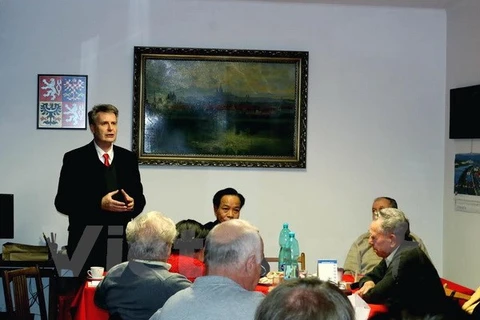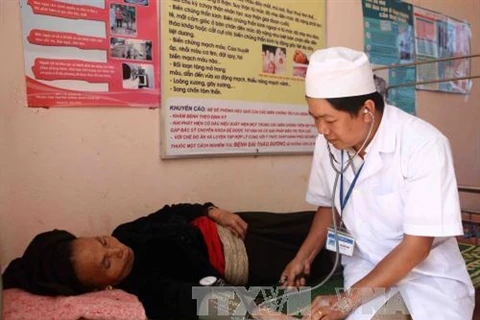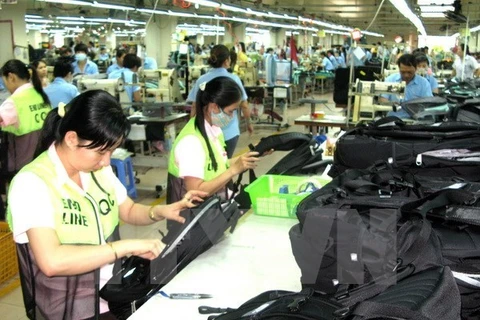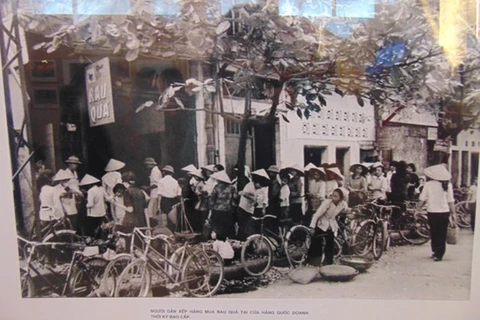Hanoi (VNA) – Bui Quang Vinh, Minister of Investment and Planning, spoke to Tuoi Tre (Youth) newspaper about the country's resolve to continue to pursue its economic reforms.
* The 2014 Laws on Enterprises and Investment have been considered representative of a new approach to legislating in Vietnam. However, since these two laws came into force, the country's business environment has not improved much. How do you respond to such complaints?
Reform is a process and it is not a magic wand that can help to solve everything. I have to say the practice of "ask and give" has become a bad habit in our country. I don't negate the fact that the practice of "small license" is still rampant here and there, and it has caused difficulties to enterprises in applying for their investment licenses. Such "absurd demands" totally act against the spirit of the 2014 Laws on Enterprises and Investment. To solve this problem, in the pine line, the Ministry of Planning and Investment will launch a comprehensive investigation into the problem to ensure the laws are strictly implemented.
* More recently, the Government has decided to equitise Vinamilk – a State-owned enterprise (SOE). Has your ministry issued new policies to help speed up the Government's drive to equitise SOEs?
By now, many SOEs have been equitised. But the quality of the equitisation of the SOEs, in my own opinion, it is not as good as is expected. According to the Ministry of Finance, just about 5 percent of the value of the SOEs have been sold. This means the other 95 percent of the value is still controlled by the State. The number of SOEs having been equitised, in my opinion, is not important, but the percentage of shares sold is much more important. This is an indication of who will control the equitised enterprises – the Government or the private sector.
At present, the Government has created a framework policy on which SOEs will retain less than 35 percent, or over 65 percent, of the shares.
In the near future, the MPI will revise some decrees to narrow down the number of enterprises that are wholly owned by the State. In our point of view, the smaller number of SOEs is better. If there are projects that private enterprises could do better than the public enterprises, the Government will then let them do so. Even in the field of airport or seaport construction, if the private sector thinks that they can do it, just let them. However, the Government still holds its responsibility in the management of the quality of such projects. This is a common practice in other countries. In the future, I firmly believe that reform ideas will continue to be reflected in enterprises' documents.
* In your opinion, what should Vietnam do to have a real market economy?
In the last several decades, our economy has achieved many impressive achievements. However, impacts from the reforms have somehow stagnated and might return to their starting points. A lot of difficulties are lying ahead, and if we don't continue with our structural reforms we will surely fall backwards. Many leading foreign experts, including Nobel Laureates, have recommended that Vietnam should continue its structural reforms and further develop its market economy. Land issues are an example. While a land market has not yet been established in Vietnam, an underground land market has been operating in the country, so is the labour market. If we consider enterprises are the market in which employees are the commodities and employers are buyers. No doubt, employees with high skills will be recruited and given high salaries. Such a mechanism will create motivation for both employers and employees. This is the operation of a market economy.
* A new government will be formed following the upcoming National Assembly Elections scheduled in late May. Do you think the new government will continue with the present renewal policy?
Renewal is a long process. It is too early for me to talk about the next government. But, I'm confident that capable and competent people will be elected to the new government and the new leaders will surely hold high the renewal flag to bring Vietnam to a higher plane.-VNA

























